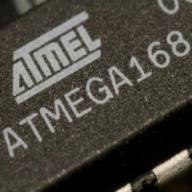Metal ion reacts with aqueous ammonia and sodium hydroxide solution to form
metal hydroxide. Does this also apply to other alkaline solution? Say potassium
hydroxide solution?
F.4 Chemistry
2014-03-26 8:14 am
回答 (4)
2014-03-26 8:29 am
✔ 最佳答案
Actually,the reaction is between metal ions and hydroxide ions. Therefore, all alkali solutions (e.g.potassium hydroxide) can be used to react with metal ions, provided that thealkali used is not too weak..事實上,這是金屬離子與氫氧離子間的反應。因此,只要鹼性不太弱,所有鹼溶液都可以與金屬離子反應。
2014-03-27 00:43:05 補充:
To Luna,
It is the metal hydroxides redissolve, but NOT the metal ions.
All of Zn^2+, Cu^2+ and Pb^2+ can form Zn(OH)2, Cu(OH)2 and Pb(OH)2 with either NH3(aq), NaOH(aq) or KOH(aq). Zn(OH)2 and Cu(OH)2 redissolve in excess NH3(aq). Zn(OH)2 and Pb(OH)2 redissolve in excess NaOH or KOH.
2014-03-31 00:09:17 補充:
Apart from the ions of Group I metals, metal ions react with a strong alkali (e.g. potassium hydroxide and sodium hydroxide) to form metal hydroxide precipitates. Amphoteric metal hydroxides (e.g, zinc hydroxide, aluminium hydroxide, lead(II) hydroxide) can redissolve in excess alkalis.
2014-03-31 00:09:47 補充:
Some metal ions (e.g. silver ion and mercury(II) ion) react with a strong alkali to form metal oxide precipitate.
2014-03-31 00:13:49 補充:
Apart from the ions of Group I metals and some Group II metals, metal ions react with ammonia to form metal hydroxide precipitates. Some metal hydroxdes (e.g. zinic hydroxide and copper(II) hydroxide) form soluble complex ions with ammonia and thus can reddisolve in excess ammonia.
2014-03-31 00:15:26 補充:
Some metal ions (e.g. silver ion and mercury(II) ion) react with ammonia solution to form metal oxide precipitate. silver oxide can redissolve in excess ammonia because of the formation of soluble complex ions.
參考: 土扁
2014-03-29 7:21 am
Zn(OH)₄²⁻, Al(OH)₄⁻ and Pb(OH)₄²⁻ are soluble complex ions.
However, they are usually classified as the soluble salts formed in the acid-base neutralization between the corresponding metal hydroxides (acid) with excess sodium hydroxide or potassium hydroxide solution (base).
However, they are usually classified as the soluble salts formed in the acid-base neutralization between the corresponding metal hydroxides (acid) with excess sodium hydroxide or potassium hydroxide solution (base).
2014-03-27 8:34 pm
It is the formation of something called soluble complex ion.
Includes Zn(OH)₄²⁻, Al(OH)₄⁻, Pb(OH)₄²⁻.
Ag(NH₃)₂⁺, Cu(NH₃)₄²⁺, Zn(NH₃)₄²⁺.
Includes Zn(OH)₄²⁻, Al(OH)₄⁻, Pb(OH)₄²⁻.
Ag(NH₃)₂⁺, Cu(NH₃)₄²⁺, Zn(NH₃)₄²⁺.
2014-03-27 7:12 am
But Zn ion, Cu ion redissolves in excess aqueous ammonia while Al ion , Pb ion and Zn ion redissoves in excess sodium hydroxide solution. So what make the difference if this is just a reaction between metal ions and hydroxide ions.
Thanks alot!
2014-03-29 16:33:28 補充:
Thanks everyone!
TO 土扁 ,
I see, so in general, metal ios reacts with ANY alkalis to form metal hydroxide. Yet, whether the salt redissove or not, depends on the type of complex ion and the alkali. Am I right?
2014-03-29 16:35:55 補充:
Thanks everyone!
To 土扁
So, can I say, metal ions reacts with any alkali (OH-) to form metal hydroxide. Yet, whether the salt redissolve , depends on the type of alkali and the complex ion. Am I right?
2014-03-29 16:36:06 補充:
Thanks everyone!
To 土扁
So, can I say, metal ions reacts with any alkali (OH-) to form metal hydroxide. Yet, whether the salt redissolve , depends on the type of alkali and the complex ion. Am I right?
2014-03-29 16:36:34 補充:
Thanks everyone!
To 土扁
So, can I say, metal ions reacts with any alkali (OH-) to form metal hydroxide. Yet, whether the salt redissolve , depends on the type of alkali and the complex ion. Am I right?
2014-03-29 17:44:50 補充:
Thanks everyone!
To 土扁
So, can I say, metal ions reacts with any alkali (OH-) to form metal hydroxide. Yet, whether the salt redissolve , depends on the type of alkali and the complex ion. Am I right?
Thanks alot!
2014-03-29 16:33:28 補充:
Thanks everyone!
TO 土扁 ,
I see, so in general, metal ios reacts with ANY alkalis to form metal hydroxide. Yet, whether the salt redissove or not, depends on the type of complex ion and the alkali. Am I right?
2014-03-29 16:35:55 補充:
Thanks everyone!
To 土扁
So, can I say, metal ions reacts with any alkali (OH-) to form metal hydroxide. Yet, whether the salt redissolve , depends on the type of alkali and the complex ion. Am I right?
2014-03-29 16:36:06 補充:
Thanks everyone!
To 土扁
So, can I say, metal ions reacts with any alkali (OH-) to form metal hydroxide. Yet, whether the salt redissolve , depends on the type of alkali and the complex ion. Am I right?
2014-03-29 16:36:34 補充:
Thanks everyone!
To 土扁
So, can I say, metal ions reacts with any alkali (OH-) to form metal hydroxide. Yet, whether the salt redissolve , depends on the type of alkali and the complex ion. Am I right?
2014-03-29 17:44:50 補充:
Thanks everyone!
To 土扁
So, can I say, metal ions reacts with any alkali (OH-) to form metal hydroxide. Yet, whether the salt redissolve , depends on the type of alkali and the complex ion. Am I right?
收錄日期: 2021-04-13 20:19:50
原文連結 [永久失效]:
https://hk.answers.yahoo.com/question/index?qid=20140326000051KK00002


